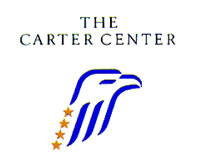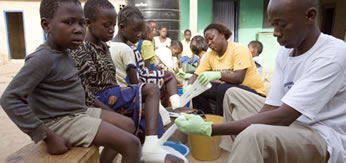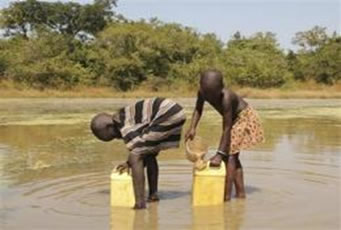
“Waging Peace. Fighting Disease. Building Hope.”
Jimmy Carter’s most successful accomplishment in his lifetime can easily be argued to be the Carter Center. The Carter Center is a non-governmental, non-profit organization founded in 1982 by Carter and his wife Rosalynn Carter. It is still an operational base for Jimmy Carter. In partnership with Emory University, the Carter Center works to advance human rights and alleviate human suffering. The Center is governed by a Board of Trustees, consisting of many prominent business persons, educators, former government officials, and eminent philanthropists. The Atlanta-based center has become a pioneer in the field of election observation, helping to improve the quality of life for people in more than 70 countries.
The Carter Center is guided and runs by five main principles:- 1. Does not duplicate the effective efforts of others.
- 2. Emphasizes action and results. Based on careful research and analysis, it is prepared to take timely action on important and pressing issues.
- 3. Acts as a neutral party.
- 4. Addresses difficult problems and recognizes the possibility of failure as an acceptable risk.
- 5. To help people with their rights.

The Carter Center consists of two main programs: the Peace Programs and the Health Programs. Within the Peace Programs, there are the Democracy Program, the Human Rights Program, the Conflict Resolution Program, the Americas Program, and the China Program. Within the Health Programs, there are programs about curing diseases (such as the guinea worm, river blindness, Trachoma, Malaria, Lymphatic Filariasis, and Schistosomiasis), International Task Force, and Mental Health.
Guinea worm has been an important issue in many countries in Africa and Asia. In 1986, there were an estimated 3.5 million cases of this disease in 21 countries in African and Asia. Ever since the Carter Center began leading the campaign to eradicate Guinea worm in 1986, the number of cases reported about this disease has dramatically decreased. In 2011, there were fewer than 1,100 cases reported in only four African countries. The end of the Guinea worm disease is within reach. Almost 99.5% of the disease has been eradicated. Astounding progress has been made on other different topics as well.
